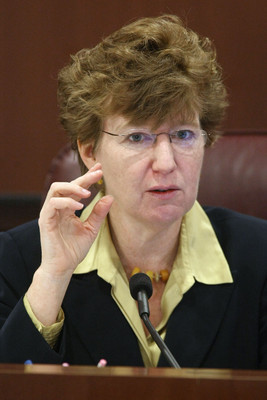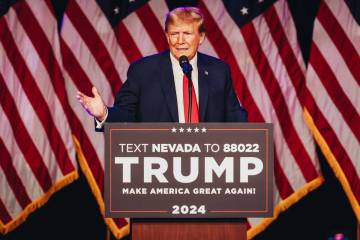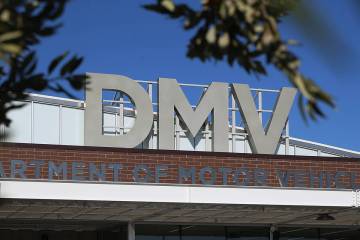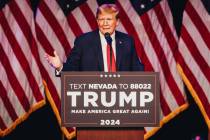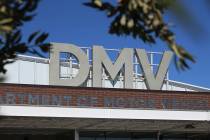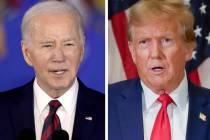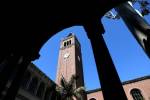Democrats say state risks stimulus loss
CARSON CITY -- Democratic legislative leaders said Wednesday they must spend at least $500 million more on education than Gov. Jim Gibbons proposes in his budget before the state can qualify for federal economic stimulus grants.
During a Senate-Assembly budget hearing, Assembly Speaker Barbara Buckley said Nevada won't qualify for the stimulus money if the Legislature backs Gibbons' plan to reduce teacher salaries by 6 percent.
"In order to qualify for the money, we are going to have to change the governor's proposal," said Senate Majority Leader Steven Horsford, D-Las Vegas.
In a joint statement, the top Democrats said higher education spending must be increased by $436 million and that $116 million must be added to the public school budget.
The Gibbons administration quickly challenged their statements and figures.
Gibbons' communications director, Daniel Burns, accused Democrats of using a "scare tactic" to make it sound like "we have to raise taxes to qualify" for stimulus funds.
"That is not the way it is," he said. "All these numbers are subject to interpretation, and our budget office is discussing them. Some of this stuff changes every day."
Burns said stimulus money might be freed up so Nevada can qualify for the grants without an additional outlay of state funds.
Nevada could receive $1.34 billion in federal economic stimulus funds once a bill already approved in the U.S. House passes the U.S. Senate. That could be as early as Feb. 16.
"This is going to be quite a Herculean task," Buckley said about sorting through the stimulus bill and finding additional state revenue.
So far, Democratic leaders have not supported any increases in taxes, although Senate Taxation Chairman Bob Coffin, D-Las Vegas, said Tuesday that no business is immune from tax increases.
Gibbons' two-year, $6.17 billion general fund budget is 9.3 percent below the $6.8 billion budget approved by legislators in 2007.
But Gibbons estimated the state would need to spend $8 billion to keep services at the level contemplated by legislators when they approved the budget two years ago.
To cover that perceived shortfall, he has recommended that the state cut salaries for state workers, teachers and university and community college employees by 6 percent and reduce their health care benefits. He also recommends reducing state support to higher education by 36 percent, or $473 million.
Burns questioned how Buckley and Horsford are calculating a formula that would determine how much money Nevada must spend to qualify for funds.
Under that formula, called "maintenance of effort," the state does not receive grants if it spends less money on education than it did in a previous fiscal year. The debate centers on which fiscal year that would be.
Both Horsford and Buckley said Nevada's budget cannot reduce higher education and public school spending below 2007-08 fiscal year figures to qualify for funds.
State Budget Director Andrew Clinger said it would be the 2005-06 fiscal year.
Vice Chancellor Dan Klaich calculated that legislators must increase spending to the Higher Education System of Nevada by $276 million over the next two years to qualify for $509 million in state stabilization funds. However, late Wednesday, university officials revised that figure to $136 million for 2009-10 and said they were seeking clarification on the requirement for 2010-11.
Buckley and Horsford, however, said the state needs to add $436 million to the higher education budget to qualify for the funds.
Klaich acknowledged after the meeting that there are a lot of unknowns about the stimulus plan.
The U.S. House last week passed its $819 billion American Recovery and Reinvestment Act. The Senate is considering its version, which could bring the total plan to nearly $900 billion.
While he wants the federal funds, Horsford acknowledged if Nevada takes the money, the state will have committed itself to additional spending once federal funds stop coming in the 2010-11 fiscal year.
"We need to ensure that the funding is there once the stimulus is gone," Horsford said. "But I have not heard from anyone in the private sector that we will get back to a 2007 economy anytime soon."
Contact Capital Bureau Chief Ed Vogel at evogel@reviewjournal.com or 775-687-3901.
$436 millionIncrease in higher education spending needed to receive federal stimulus funds, according to state Democrats $116 millionIncrease in the public school budget needed to receive federal stimulus funds, according to state Democrats $1.34 billionIn federal funds Nevada could receive from the stimulus package 36% Reduction in higher education spending in Gibbons' budget



